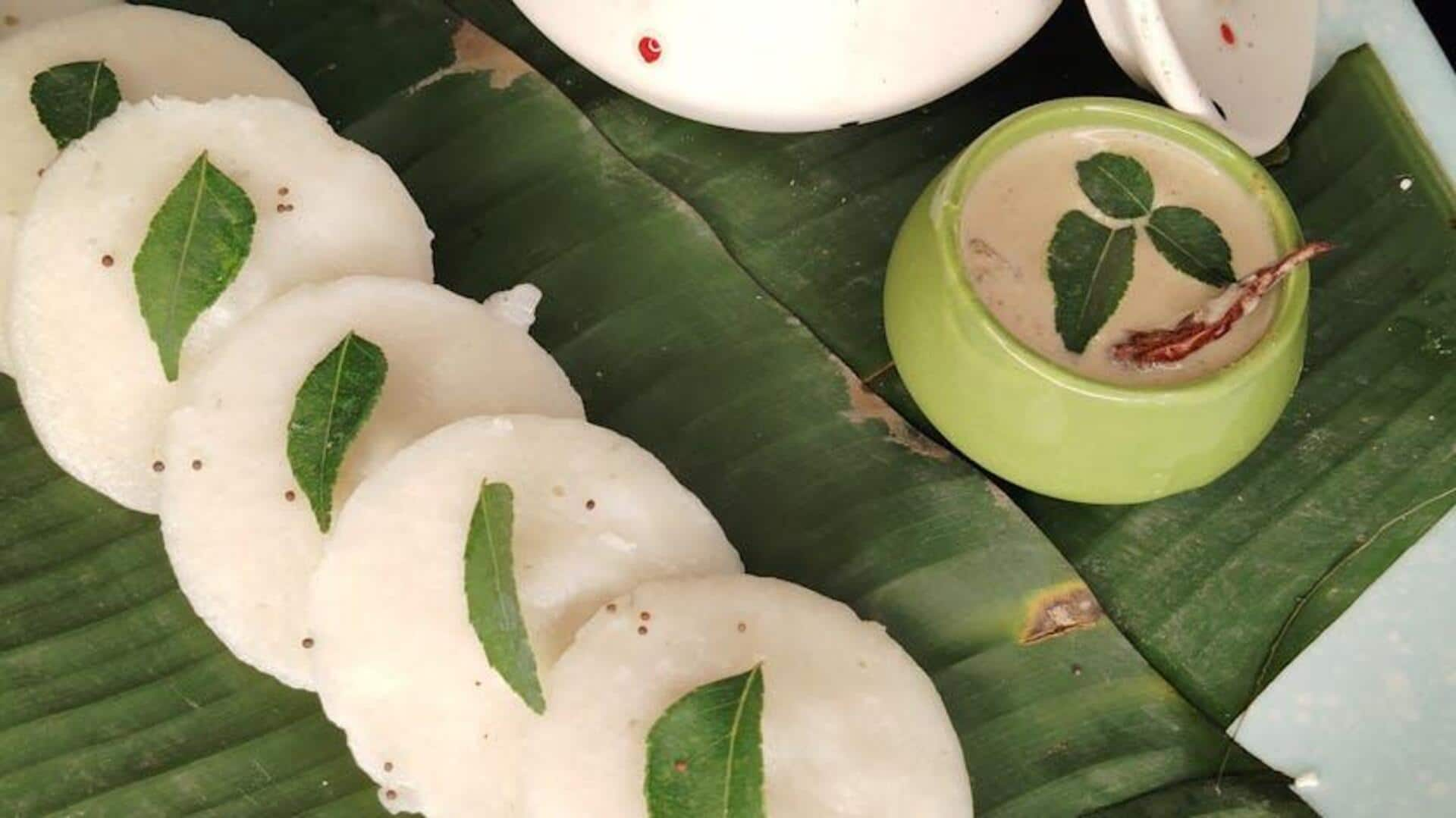
How idli became India's breakfast staple
What's the story
A soft and fluffy steamed cake of fermented rice and lentil batter, idli has become a breakfast staple across India. Its simplicity, nutritional value and versatility have made it popular. Originating from South India, idli has crossed regional boundaries to become a favorite morning meal for many Indians. Here, we look at idli's journey from humble beginnings to becoming a breakfast essential.
Origins
Historical roots of idli
Idli originated in ancient South Indian kitchens, where it was first made as an easy-to-digest meal. According to historical texts, the idea of steaming food entered India around 800-1200 CE. Gradually, this practice developed into making idlis from locally available ingredients like rice and urad dal (black gram).
Health value
Nutritional benefits
Idlis are revered for being healthy because they are low on calories and high on nutrition. They are packed with carbs and proteins, but low on fat. The process of fermentation increases the bio-availability of nutrients, making them easier for the body to absorb. This makes idlis the perfect choice for anyone looking to have a balanced diet.
Adaptability
Versatility in preparation
Idli's universal appeal also lies in how easy it is to prepare and the range of accompaniments you can serve it with. From being traditionally paired with coconut chutney and sambar (a lentil-based stew), idli's versatility is further displayed in variations like rava idli, which is prepared using semolina. Millet-based versions serve as alternatives for varied dietary needs, proving just how flexible idli can be.
Regional influence
Cultural significance across regions
Hailing from the South, idlis have effortlessly absorbed the flavors of different regional cuisines across India, courtesy migration from centuries. Every region has adopted the idli, giving it its signature twist by infusing local flavors or changing serving styles. But they don't let go of the soul of the beloved dish. This flexibility reveals idli's popularity and its contribution in bringing disparate cuisines under one food umbrella.